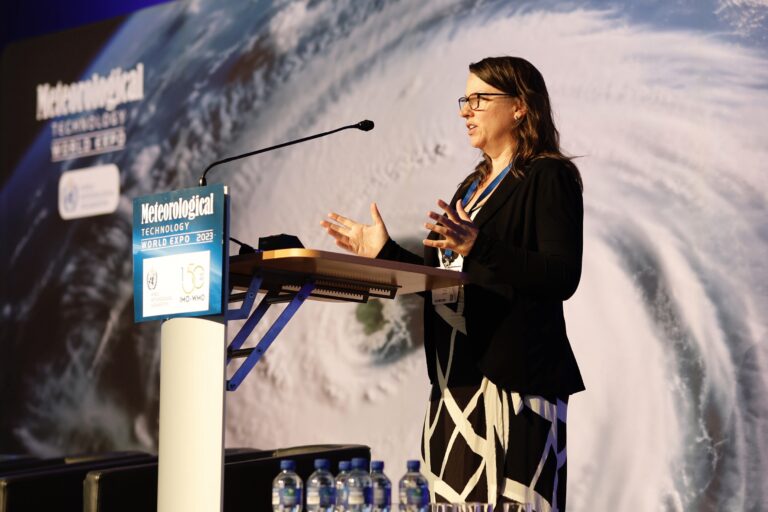The WMO’s Infrastructure Commission (INFCOM) conducted a Forum on Advancing the Environmental Sustainability of Observing Systems and Methods at Meteorological Technology World Expo on October 3.
The three-hour forum provided an opportunity for industry representatives to showcase the latest developments in sustainable weather and climate observing systems and methods, and to engage with each other and the broader user community to share and discuss opportunities and challenges to enhance sustainable outcomes. It focused primarily on meteorological and marine observational domains.
The forum included the results and early recommendations from the WMO Survey and Virtual Workshop on the Environmental Sustainability of Observing Systems and Methods. A subsequent panel discussion with industry and INFCOM representatives provided an opportunity for the former to respond to WMO member perspectives and advance the dialogue on requirements and expectations for policy guidance. Finally, a series of flash talks offered industry representatives the chance to highlight their work to reduce the environmental impacts of observing systems and methods.
During her presentation, Shannon Kaya, director of the transformation, innovation and engineering division of the Meteorological Service of Canada (MSC), commented, “Observing systems and operations have environmental impacts. Some of the greater environmentally challenging methods of observation are foundational in the production of critical weather and climate information. Examples of observation methods and operational practices with environmental impacts include radiosondes and ozonesondes; waste transportation and disposal; marine drifter buoys; the use of mercury; oil/antifreeze mixtures used in precipitation gauges; and site decommissioning.
“So for sure, the transition to more environmentally sustainable methods is challenged by the fact that the observations that we gather are critical to the health and safety of populations around the world. Over the years, this community has established a way of doing things, and changes take time. We need to make these changes in a way that does not create a setback in everything we’ve accomplished so far. So we need to maintain that data integrity throughout the process. We need to think about cost and operational feasibility. But I remain convinced that there is a better way of doing things across the value chain, and we need to think innovatively in that area.”
Don’t miss out on the show of the year – register now for your free entry pass and visit the website for the full exhibitor list and all the latest information.



